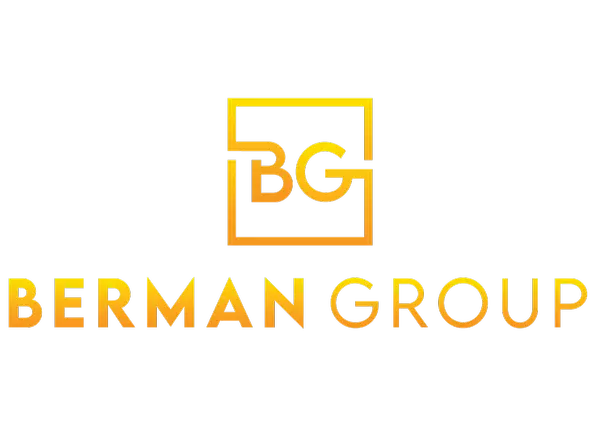Importance of a Down Payment
Introduction:
When embarking on the journey to homeownership, one of the most pivotal discussions often revolves around the down payment. It's more than just the initial hurdle of purchasing a home; it’s a critical component that affects your financial health for the duration of your homeownership. Despite its importance, many homebuyers hold misconceptions about down payments that can lead to costly mistakes. In this post, we’ll explore why down payments are so crucial and debunk some of the common myths that surround them.
The Importance of Down Payments:
-
Equity Building: Right from the start, a substantial down payment helps you build equity in your home. Equity is the portion of the property you truly "own," and the more you have, the better your financial cushion against market fluctuations.
-
Loan Terms and Interest Rates: Lenders reward higher down payments with more favorable loan terms. Generally, the larger your down payment, the lower your interest rate, which can save you tens of thousands of dollars over the life of your mortgage.
-
Avoiding Private Mortgage Insurance (PMI): For down payments less than 20%, lenders typically require PMI, an additional fee to mitigate their risk, which can significantly inflate your monthly payments.
-
Lower Monthly Payments: A larger down payment reduces the principal amount borrowed, which in turn lowers your monthly mortgage payment, making your ongoing financial commitment more manageable.
-
Competitive Edge in the Housing Market: Sellers often view buyers with larger down payments as more serious and reliable, giving you a competitive edge in a hot market.
Common Misconceptions About Down Payments:
-
Myth 1: You Always Need 20% Down While a 20% down payment is ideal for avoiding PMI and securing better loan terms, many programs allow for much less, with some qualifying buyers putting down as little as 3-5%.
-
Myth 2: Down Payment Assistance Is Only for First-Time Buyers Contrary to popular belief, there are numerous down payment assistance programs available, not just for first-time buyers but for repeat buyers as well.
-
Myth 3: The Down Payment Is the Only Upfront Cost Many buyers forget about closing costs, which can range from 2% to 5% of the purchase price. Budgeting for these is as important as budgeting for your down payment.
-
Myth 4: A Down Payment Is the Same as a Deposit A deposit is a good faith payment to secure the home under contract, often credited towards the down payment or closing costs, but it is not a substitute for the down payment.
-
Myth 5: You Can’t Use Gifted Funds for a Down Payment Gifted funds are acceptable for down payments on a home, but lenders require a 'gift letter' to ensure the funds are indeed a gift and not an undisclosed loan.
Conclusion:
The down payment on a home is not just the first step in the buying process; it’s an investment in your financial future. It shapes your mortgage, affects your monthly budget, and can even determine the stability of your homeownership. By dispelling the myths and understanding the real importance of down payments, you position yourself for a smarter, more secure purchase.
Remember, every potential homeowner's situation is unique. It’s always advisable to speak with a financial advisor or mortgage professional to assess what down payment strategy works best for your circumstances.
Ready to Start Saving?
If you’re preparing to embark on the path to homeownership and have questions about down payments or other financial considerations, feel free to reach out or leave a comment below. Let's make your dream of owning a home a well-planned and financially sound reality.Frequently Asked Questions About Down Payments:
Q: How important is a down payment on a house?
A: A down payment is extremely important as it affects your mortgage interest rates, monthly payments, equity building, and whether you'll need to pay for private mortgage insurance (PMI).
Q: Is it bad to not put a down payment on a house?
A: Not putting a down payment can lead to higher monthly payments, potential for higher interest rates, the necessity of PMI, and less equity in your home from the outset.
Q: Is it better to put a down payment or not?
A: It is generally better to put a down payment on a house. It reduces the loan amount, may lower your interest rate, and decreases your monthly payments.
Q: What are the advantages and disadvantages of a down payment?
A: Advantages include lower monthly payments, potential interest savings, and immediate home equity. Disadvantages could include using a significant amount of cash that could have been used for investments or other needs.
Q: What are the disadvantages of a large down payment?
A: The main disadvantage is less liquidity since a large sum is tied up in the property. It could lead to a missed opportunity for diversifying investments or saving for other financial goals.
Q: How much do you need for a down payment on a $300,000 house?
A: Typically, you'd need 20%, which is $60,000, to avoid PMI and secure favorable loan terms. However, some loan programs allow for less.
Q: Why not to put 20% down on a house?
A: Some argue against a 20% down payment if the funds could earn more in investments, or if keeping the cash for emergencies is more beneficial.
Q: How much of a down payment do you need for a $200,000 house?
A: For a conventional loan, aiming for 20% is ideal, so $40,000. However, you can find loans that require as little as 3-5%, so $6,000-$10,000 could be sufficient.
Q: Is it smart to put a big down payment on a house?
A: A big down payment can be smart if it fits your financial situation without depleting your savings and if it creates a more manageable mortgage payment.
Q: What are the benefits of zero down payment?
A: Zero down payment loans allow you to buy a home without waiting years to save for a down payment, though they come with higher monthly payments and typically higher interest rates.
Q: Is it worth putting 20% down on a house?
A: Putting 20% down can save you from paying PMI, reduce your monthly payments, and give you substantial equity in your home from the start. However, it's essential to consider your overall financial picture.
Categories
Recent Posts











